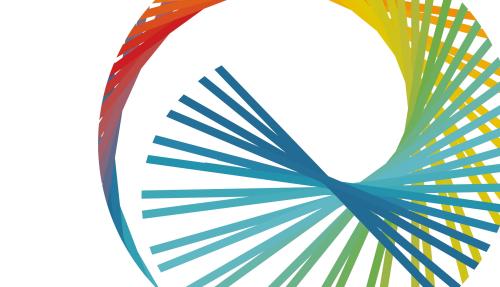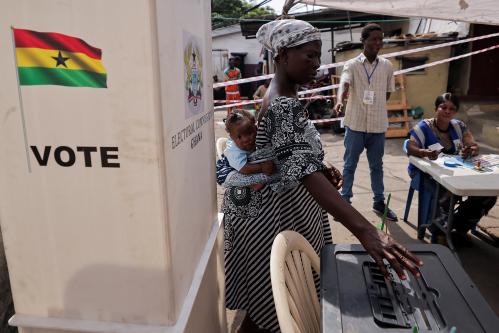Below is a viewpoint from Chapter 3 of the Foresight Africa 2018 report, which explores six overarching themes that provide opportunities for Africa to overcome its obstacles and spur inclusive growth. Read the full chapter on human development and poverty trends in Africa here.
For those of us who, around 2013, were optimistic about African economies, the past few years have been a disappointment. Whereas the continent averaged close to 5 percent annual GDP growth in the first decade and a half of this century, that growth rate has since fallen to 1-3 percent. The ostensible reason is the dramatic drop in commodity prices, especially oil, since mid-2014. Aggregate growth is pulled down by oil exporters, notably Nigeria and Angola, and to a lesser extent, South Africa. As so many African countries depend on commodities such as oil, copper, and cotton for their exports, the decline in the prices of these commodities amounted to a significant loss in income. But this explanation begs the question of why these governments did not save more of their revenues during the commodity boom in order to better cushion themselves when prices fell.
The latter question takes us into the realm of governance. Africa’s oil exporters have systematically failed to use their oil revenues to benefit their citizens. Equatorial Guinea, with per capita income of around $6,500 in 2016, has one of the lowest child immunization rates on the continent (much lower than, say, Burundi, with a per capita income of less than $300). Nigeria earned about $43 billion a year in oil rents between 2000 and 2014 and still has extremely weak infrastructure and high poverty. Devarajan, Giugale, and others (2013) show that transferring 10 percent of oil revenues as transfers to the population could eliminate poverty in Angola, Gabon, and Equatorial Guinea, and reduce poverty by 40 percent in Nigeria. Ghana, which discovered oil in 2007, immediately increased the public sector wage bill, causing the fiscal deficit to rise by about three percentage points of GDP by 2008. By the time the oil started flowing, most of the revenues had already been spent.
The reason for this pattern is that oil revenues go directly from the oil company to the government. Consequently, citizens often do not know the extent of these revenues. Furthermore, unlike tax revenues, they may not think of these revenues as “their money” and hence would not scrutinize government spending as closely. As a result, actors within government are able to capture these oil revenues for their private benefit, resulting in poor public spending outcomes.
Universal basic income (UBI) provides a possible solution to this problem. If, instead of spending oil revenues, the government were to transfer it directly to all citizens (in equal amounts), and then tax them to finance public goods, two changes happen. First, citizens will know the size of oil revenues. Second, they will have a greater incentive to scrutinize government spending, since it is financed out of their tax payments. Devarajan and others (2010) show that such a scheme could result in better public-spending outcomes.
Furthermore, thanks to biometric identification cards that also transfer money, it is now possible to implement this tax and transfer at low cost (India has issued these cards to over a billion people). UBI is currently being piloted in a number of countries, including Finland, Canada, and Kenya. Given the track record of poor public spending, the time to introduce UBI in oil-rich African countries has arrived.
REFERENCES
Devarajan, S., M.M. Giugale, H. Ehrhart, T. Minh Le, and H. Mai Nguyen. 2013. “The Case for Direct Transfers of Resource Revenues in Africa.” Center for Global Development Working Paper No. 333. Washington, D.C.: Center for Global Development. https://www.cgdev.org/publication/case-direct-transfers-resource-revenues-africa-working-paper-333.
Devarajan, S., T. Minh Le, and G. Raballand. 2010. “Increasing Public Expenditure Efficiency in Oil-rich Economies.” World Bank Policy Research Working Paper No. 5287. Washington, D.C.: World Bank Group. https://openknowledge.worldbank.org/handle/10986/3774.
The Brookings Institution is committed to quality, independence, and impact.
We are supported by a diverse array of funders. In line with our values and policies, each Brookings publication represents the sole views of its author(s).








Commentary
Foresight Africa viewpoint – Universal basic income and Africa’s oil countries
January 22, 2018